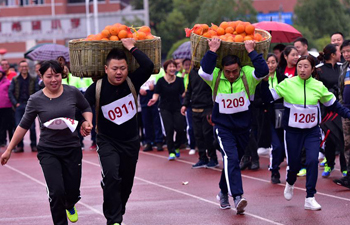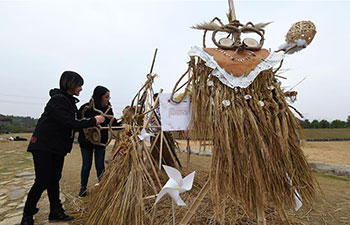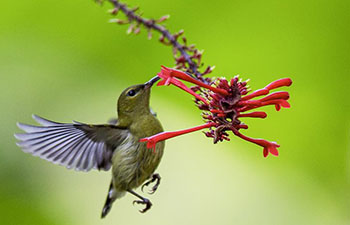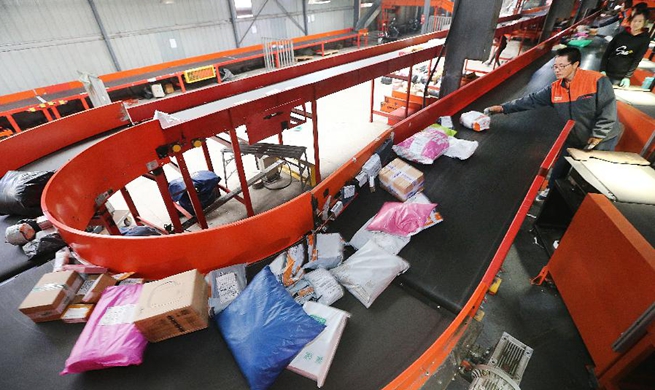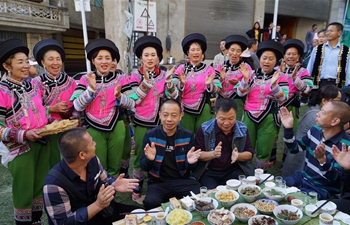BEIJING, Nov. 12 (Xinhua) -- Some 10,000 servings of imported Argentine veal were sold in just one minute during the first hour of the Singles' Day, a festival-like day that boasts a gala of electronic purchases in China, according to Suning.com, a pioneering Chinese online shopping platform for fresh food.
Thanks to the boom in Argentine meat consumption in China, many large- and medium-sized companies found an opportunity to expand their business. So did Compania Central Pampeana (CCP), a Chinese-Argentine project that was born in 2014 and specializes in the meat market.
"The proposal came from China," said Juan Budano Roig, one of the founders of CCP.
"A Chinese businessman contacted us and we made an agreement with shareholders from both countries. The Chinese sharing is led by Kingwarm, a meat distributor that mostly works in Shanghai and Tianjin," Budano Roig told Xinhua through e-mail.
In 2017, CCP exported about 11,000 tonnes of frozen boneless Argentine beef to China, three times its export volume in 2016.
"We want to increase our exports to China for next year by about 30 percent in comparison to the current year," added Budano Roig, who thanks to this project has already come to China almost 15 times and visited important cities like Beijing and Shanghai.
Ernesto Taboada, executive director of the Argentine-Chinese Chamber of Production, Industry and Commerce, said that one of the reasons why Argentine meat is so well-known is because "Argentina has no pollution. We have clear skies every day and animals live in open fields."
Taboada said that "as cows walk, that makes their muscles firm and the meat doesn't have lots of fat. Animals are basically fed with grass and no balanced feed," a characteristic that most Chinese consumers recognize.
Talking about the cultivation and export process, Taboada said that cows are inseminated by bulls of medium and high quality, and once a calf is born and reaches 180 kg, it is sold to the "greenhouses", which have fields with pastures suitable for fattening cattle.
"Once there, the calves remain until reaching 300 or 400 kilos," Taboada said. Then, the "greenhouses" take these animals to auction fairs where refrigerated warehouses will buy them and export the meat and by-products to the whole world.
On Nov. 6-10, some Latin American countries fixed their eyes on Shanghai where the first China International Import Expo 2018 (CIIE) was being held, which brought together representatives of more than 130 countries and regions for commercial exchanges.
"We all feel very enthusiastic about this event...," Taboada said, adding that nowadays the Chinese economy is going through a "moment of great opening" to the entire world.
At present, meat exports to China mean an income of about 465 million U.S. dollars for Argentina. This amount could rise to 1 billion if the job is well done in the future, according to Diego Ramiro Guelar, Argentina's ambassador to China.
Facing "countless opportunities" for the agro-export complex, "small and medium-sized Argentine companies need to dare to export for taking full advantage of the opportunity offered by the Chinese market," said Budano Roig.




